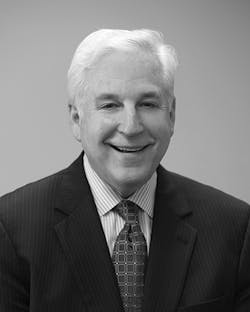Transitions Roundtable: Buy practice while paying student loans?
Question: Can new dentists afford to buy a practice on top of all of their student loan debt?
Guy B. Jaffe, MBA
The average dental school debt among class of 2019 dental school graduates was $292,169, according to a survey by the American Dental Education Association.1 Two to four years after graduation, many young dentists begin thinking about purchasing their own practice, though many wonder if it’s advisable to incur more debt on top of their existing student loans. Some dentists do not want to own a practice and prefer to continue working indefinitely as an associate in private practice or corporate dentistry. Other young dentists may want to own a practice, but incorrectly believe that their student debt combined with the price of purchasing a dental practice makes it impossible.
Ironically, the fastest way to get out from under a mountain of student debt is to purchase a profitable practice and incur additional debt. The new practice becomes the economic engine that will enable the dentist to repay all debt, raise a family, and educate his or her children. Here are some strategies for young dentists to consider that could make buying a practice while still carrying substantial student debt a viable option:
Save money and pay down student debt
Most young dentists work as associates upon graduation. As an associate, young dentists are able to get experience, pick up speed, and save money. If the dentist is married and the spouse also works, the second salary is very helpful. Recent graduates should continue to live frugally as they did as students. They should begin paying down their student loans and save. When the right practice comes along, these young dentists will be in a strong financial position and able to consider purchasing their own practice.
Purchase a large practice
Some young dentists purchase large, profitable practices. Larger practices usually mean greater cash flow and lower overhead. With substantial cash flow from the practice, young dentists should be able to pay the practice’s operating expenses and debt service to purchase the practice. Typically, there is enough money remaining to enable the new owner to live comfortably while paying down practice loans. As student debt has increased substantially in the past 10 years, the size of practice young dentists are purchasing has grown larger.
Purchase a small or midsized practice Another way to obtain the necessary cash flow is to buy a small or midsized practice at a lower price point, requiring a lower loan amount and less debt service. At a small practice, the owner may need to work only two or three days a week. The dentist may have enough time to work in another office two or three days a week as an associate while continuing to build their own practice. By combining the practice’s cash flow with an associateship, the young dentist should be able to pay down student and practice loans and save.
Allen M. Schiff, CPA, CFE
This is such an interesting question! Over the years, so many of you have asked me this question, and my immediate response is a resounding yes! The dental industry is blessed to have both local and national lenders that truly understand dentistry and the economics behind it. “What do the banks understand?” you may ask. The banks know that dentistry is one of the least risky professions to lend to; it’s safer than real estate, restaurants, construction, and the list goes on. The national failure rate on dental financing is extremely low. This means most, if not all, dentists pay their principal and interest payments monthly. Looking at it from a lender’s perspective, a loan to a dentist is a safe bet!
As a result, most banks don’t take dentists’ current student debt into consideration when thinking about financing a new practice acquisition. Why is this? Because of dentists’ earning power as entrepreneurs! Let’s take a look at entrepreneurship.
How soon should you consider buying a practice or starting your own?
If you are a recent graduate, a good rule of thumb is to start looking for these opportunities any time after the 18-month mark. The 18-month mark refers to the period of time you’ve been out of dental school. For example, if you graduated in June 2020, you will be ready to consider practice ownership or a start-up as of January 2022 or shortly thereafter.
What qualifies you to obtain dental financing?
In the simplest of terms, a credit score greater than 680 and no blemishes on your state licensing record qualifies you. Ultimately, you will have to personally guarantee the loan.
Practice valuation
If you are thinking about purchasing an existing practice, be sure to perform your due diligence, and don’t pay more than the practice is worth. Be sure to engage a dental CPA (adcpa.org) to help you with this process. As I’m writing this response, we expect practice values to be maintained postpandemic, as long as there are no drastic changes within the practice.
Postpandemic financing considerations
If you are applying for financing postpandemic, many banks are looking for the following information:
- Three years’ (2019, 2018, 2017) annual business income tax returns.
- TTM, or the “trailing 12 months” profit and loss statement, which includes the pandemic period. An example of this would be the period of July 1, 2019 through June 30, 2020.
- Postpandemic monthly production and collections reports for the months of June 2020 versus June 2019, July 2020 versus July 2019, August 2020 versus August 2019, etc.
Earnings comparison: Owner versus associate
You will always earn more as a practice owner than as an associate. This is because not only do you earn the fruits of your own labor, but you earn a profit from the hygiene department as well. As a result, banks feel comfortable lending to you because of your increase in earning power.
Conclusion
Think about other industries, such as the ones your parents work in, aunt or uncle work in, or niece or nephew work in. As you sit back and reflect, ask yourself this: Of these industries plus dentistry, to which will financial institutions lend 100% of the acquisition costs plus $50,000 in working capital to acquire a business in that industry? The answer is . . . drumroll . . . dentistry! This is what makes dentistry an awesome profession. Go get ’em and good luck; have fun and go find the practice of your dreams!
Reference
1. Educational debt. American Dental Education Association GoDental. https://www.adea.org/GoDental/Money_Matters/Educational_Debt.aspx
About the Author

Allen M. Schiff, CPA, CFE
Allen M. Schiff, CPA, CFE, is a founding member of the Academy of Dental CPAs. This group of very knowledgeable CPA firms specializes in practice management services for the dental industry. He serves on the ADCPA executive committee and is the current president of the ADCPA. Reach him at (410) 321-7707 or [email protected].
Updated February 20, 2019
Guy B. Jaffe, MBA
Guy B. Jaffe, MBA, has been the owner/broker of ADS Midwest, the premier dental broker in the Midwest, since 1987. Jaffe is past president and one of the original founders of American Dental Sales (ADS), an association of independently owned and operated dental practice brokers throughout the US. He is a graduate of the University of Illinois and received his MBA from Washington University in St. Louis. You can reach Jaffe at (800) 221- 6927 or [email protected].
Updated October 15, 2020


